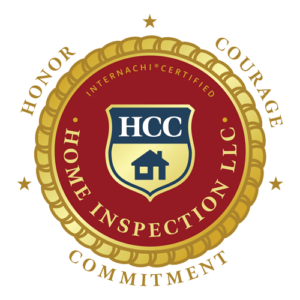Structural Systems
Foundations, grading & drainage, basements, walkways, and floor, wall and ceiling structures.
Our inspectors at HCC Home Inspections are certified/licensed in WA state and are up to date on all the latest standards, tools, technology, and inspection techniques to ensure that all the key systems, structures, and components of your home are found to be in safe working order. Please feel free to reach out with any questions about your inspection, reports, and additional services/packages we offer to extend our commitment to you!
As soon as you book an inspection with us, our Commitment to you begins. Within 24 hours after booking, you will be contacted with a warm welcome and introduction to our team, we will also review a few inspection details with you. The day before your Inspection your assigned Inspector will contact you to confirm the inspection and go over any initial concerns or last-minute details that may have come up during your initial walk thru with your agent.
We understand not everyone has 3-4 hours to set aside for a home inspection. So, for your convenience we offer a couple of different options for you to attend your Home Inspection:
When you and your agent arrive, the inspector will greet you and provide a brief introduction to your inspection, including a breakdown of our systems inspection process. Then they will review your initial and any additional questions or concerns you might have.
The inspection of your home will then begin. Feel free to follow along with your Home Inspector and ask any questions or point out concerns you might have as you go through the home.
After your inspection is complete, your home inspector will then sit down with you to do an initial review of your report.
They will explain the following:
Foundations, grading & drainage, basements, walkways, and floor, wall and ceiling structures.
Roof coverings, drainage systems, flashings and skylights, chimneys and other roof penetrations.
Service entrance and panels, branch circuits, connected devices and fixtures, smoke and carbon monoxide detectors, and making sure your outlets are GFCI-protected.
Fixtures and faucets, water supply systems, drain, waste and vent systems, water heater, vents, flues and chimneys, and any sump pumps or fuel storage and distribution systems.
Heating and cooling equipment, ducts, vents and flues.
Dishwasher, garbage disposal, range hood, range or oven, cooktop, microwave, trash compactor, bathroom exhaust fans, garage door operator, and other built-in appliances.

